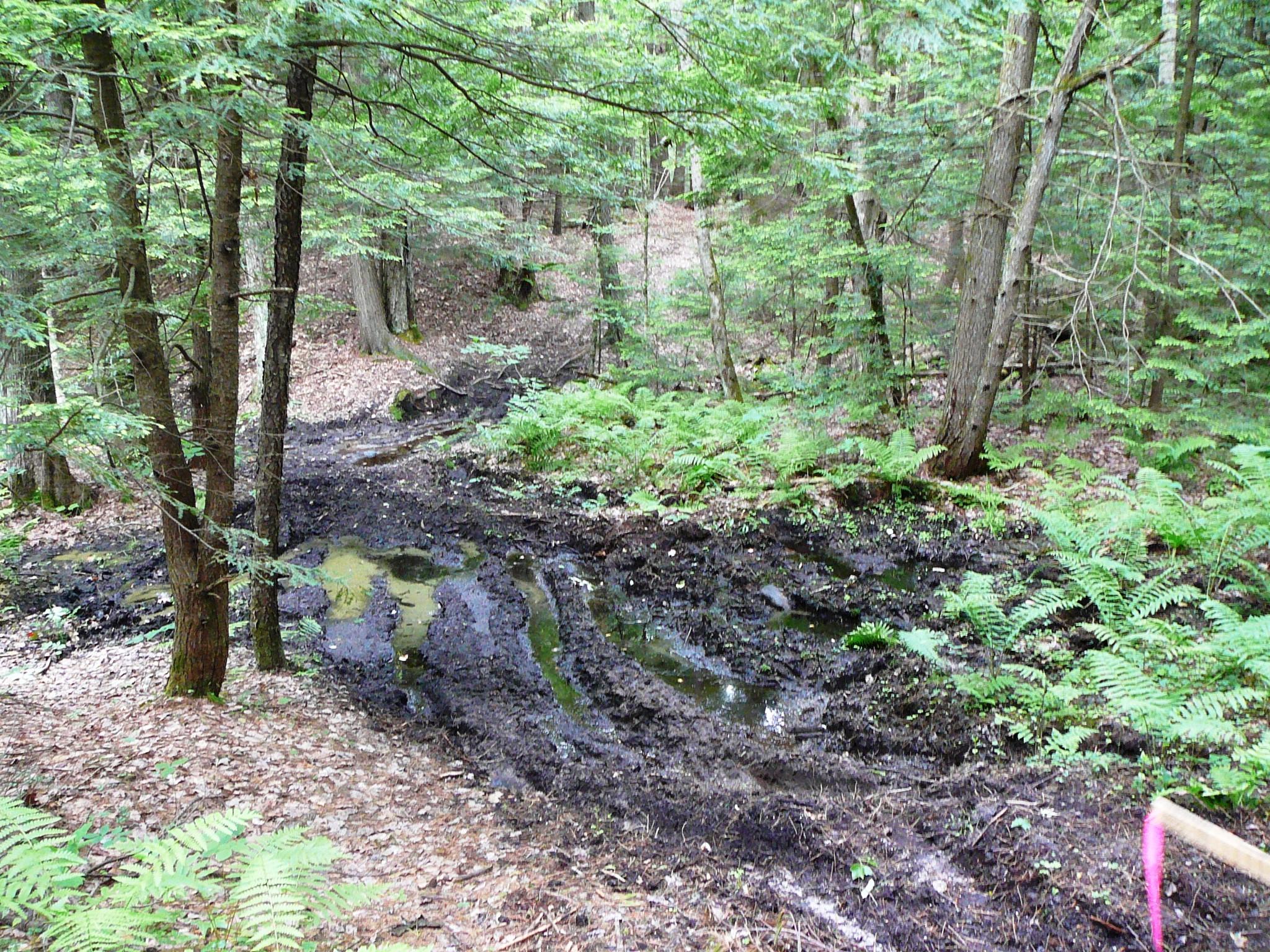Statewide Plan and Relief for N.H. Fish and Game Discussed
- Tags:
- Advocacy

One of the Forest Society's goals for the commission is to encourage legislation to promote responsible ATV use that doesn't damage conserved lands.
On August 23rd, the Commission to Study OHRV Usage and the Allocation of Law Enforcement and Emergency Response Resources and Responsibilities (let’s call it the ATV Commission) met to review possible options it believes the Legislature and government agencies should consider to ensure the State has the capacity to manage New Hampshire’s ATV system in a safe and orderly way. The Legislature approved a bill this session (HB 1396) that established this commission and placed both the Forest Society and the Nature Conservancy on it.
Among the ideas and opinions the Commissioners discussed, two in particular most directly address the concerns we have raised. First, we believe the State agencies need to undertake a comprehensive ATV trail system master plan. The master plan’s goals are:
• To develop an accurate map of all existing and planned trails.
• To develop the criteria needed to determine appropriate areas to build new trails.
• To accurately determine the appropriate level of future growth.
• Identify the resources necessary to maintain and enforce New Hampshire's ATV trail system.
• Identify ecologically-sensitive areas that conflict with ATV use.
• Inventory the infrastructure needed to safely handle increased ATV access, including parking and restroom facilities.
Included in this effort should be N.H. Fish and Game, N.H. State Police, county and local law enforcement agencies, ATV clubs, non-motorized outdoor recreational groups, economic development groups such as chambers of commerce and small businesses, timberland and other private property owners and municipal representatives.
A master plan developed in partnership with all of these stakeholder groups will provide clarity on the future growth of ATV trails, promote the continued economic activity associated with ATV use, protect sensitive environmental areas and reduce conflicts between ATV and non-ATV users.
The second proposal under consideration directly cuts to the N.H. Fish and Game Dept.'s capacity to enforce the rules overseeing ATV use. In the view of some commissioners, if a local municipality decides to allow off-road vehicle drivers to use the local roads or state roads in Grafton and Coos County (as currently authorized under state law) then that municipality should also assume the full cost of enforcing the operation of those ATVs. This change in jurisdiction would lift some of the burden, and therefore the financial expenses, from the Fish and Game Department and N.H. State Police.
The ATV Commission meets again on Sept. 14 at 2 p.m. in the Legislative Office Building in Concord and will likely finalize the specific recommendations for proposed legislation, which will then be submitted to the President of the Senate, the Speaker of the House of Representatives, the Senate clerk, the House clerk and the Governor.
